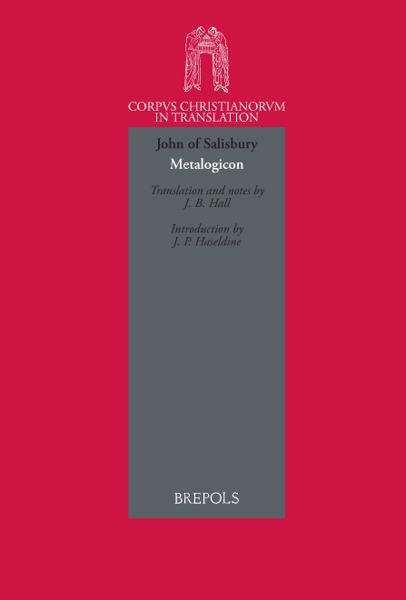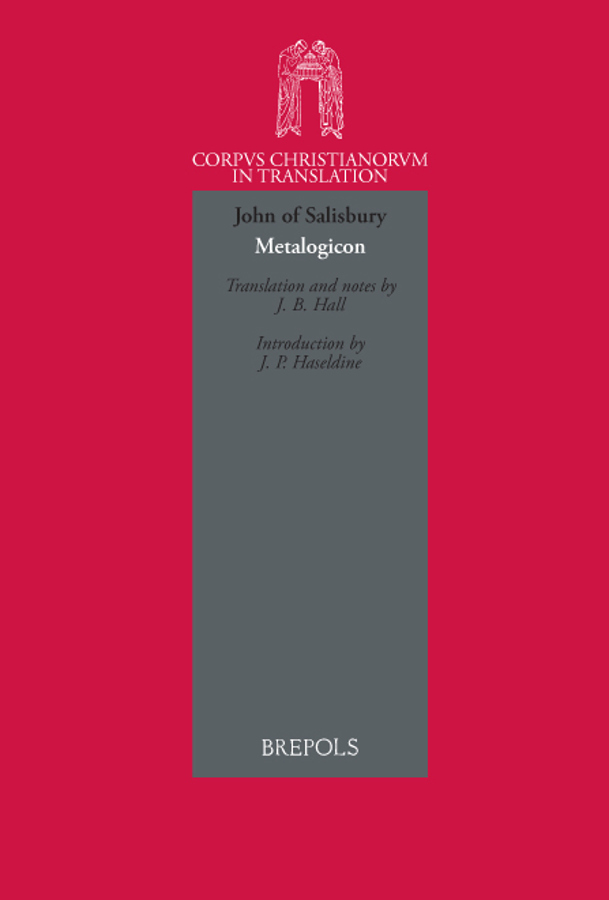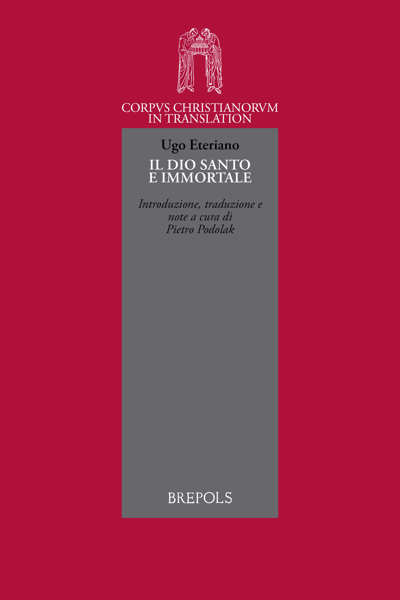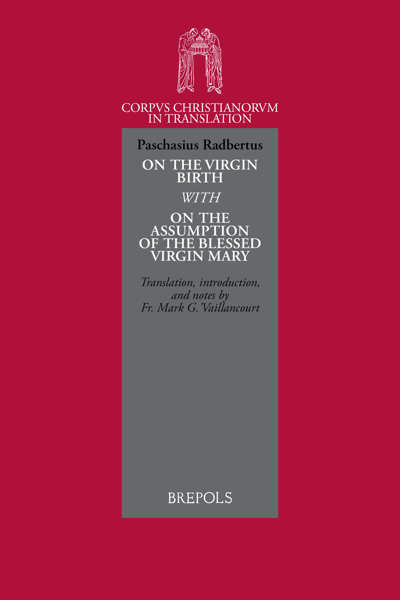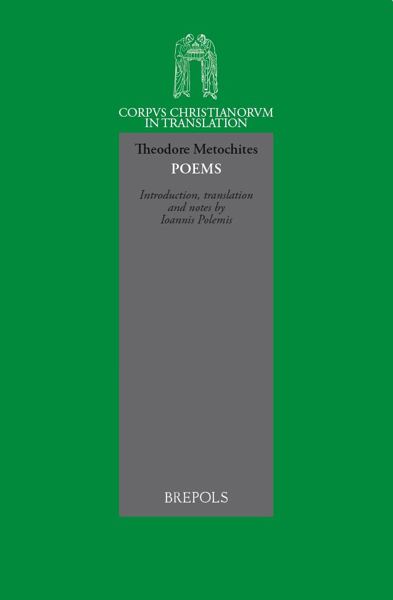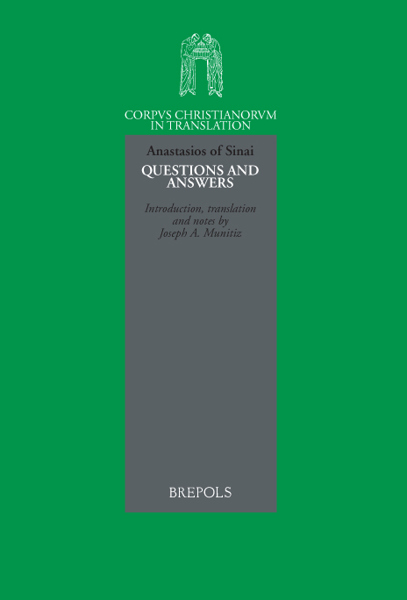
- Pages: 369 p.
- Size:156 x 234 mm
- Language(s):English
- Publication Year:2013
- € 65,00 EXCL. VAT RETAIL PRICE
- ISBN: 978-2-503-53398-8
- Paperback
- Available
- € 65,00 EXCL. VAT RETAIL PRICE
- ISBN: 978-2-503-56302-2
- E-book
- Available
This book offers an historical study of John of Salisbury’s Metalogicon, a treatise that defends the role of logic and of Aristotle’s Organon in the educational system of twelfth-century Paris.
"Un des mérites de cette publication est dans l’introduction donnée par J. P. Haseldine, qui propose un panorama à la fois vaste, clair et nuancé, tant de l’histoire que de l’état actuel de la recherche sur cet auteur. (...) Il propose par ailleurs un résumé très utile du Metalogicon, qui en relève la cohérence et les articulations." (Jean-Christophe de Nadaï, dans: Revue des sciences philosophiques et théologiques, 98, 2014, p. 768-769)
"(...) Pour mener à bien cette tâche, nul n’était mieux placé que l’éditeur principal, John Barrie Hall, éditeur non seulement de Jean de Salisbury mais aussi des auteurs classiques dont ce dernier était familier. De là une traduction excellente, intelligente, à la fois fidèle et claire. (...) Par la qualité de la version anglaise et la richesse de l’introduction, l’ouvrage remplit parfaitement son rôle de traduction, qui est de rendre le texte accessible aux lecteurs et, par le fait même, d’en donner une première interprétation, ici mûrie par une longue familiarité avec l’auteur et son texte." (Dominique Poirel, dans: Archives de Philosophie, 78, 2015/3, p. 567-568)
Professor J.B. Hall is Hildred Carlile Professor of Latin Emeritus, University of London. Apart from John of Salisbury, he has published books on the textual criticism of Claudian, Ovid and Statius.
Dr Julian P. Haseldine is Senior Lecturer in Medieval History at the University of Hull. He has edited the letters of Peter of Celle and published widely on medieval friendship and friendship networks.
John of Salisbury has long been celebrated as one of the foremost humanists of the twelfth-century renaissance, an erudite correspondent, legal expert, historian, poet, diplomat and political thinker, and clerk to two successive archbishops of Canterbury, Theobald and Thomas Becket. His Metalogicon, ostensibly a defence of the role of logic and of Aristotle’s Organon in the educational syllabus of the day, makes a powerful argument for an educational system of real practical utility for society, one whose intellectual coherence and rigour should underpin political morality and rational governance. As such, it has been seen to stand alongside the more famous Policraticus as an integral part of the intellectual contribution of one of Europe’s great political theorists. Based on John’s own experiences as a student and a teacher, the treatise offers unique evidence of the educational system of twelfth-century Paris at a critical stage in the early development of the schools, and of the earliest reception of the Aristotelian texts of the ‘new logic’. It is also an important contribution to the tradition of pedagogical and educational thought, with its unique attention to teaching methods and its belief in the purpose of education both for the formation of the person and for the good of society. The treatise has been accorded an important place in many modern scholarly debates, including those on the origins of the universities, on medieval philosophy and on medieval humanism.
This new translation is based on the edition of J.B. Hall, auxiliata K.S.B. Keats-Rohan, which appeared in Corpus Christianorum Continuatio Mediaeualis as Iohannes Saresberiensis - Metalogicon (CCCM 98), and so makes available to the student and general reader for the first time a translation of a text of this important work established on modern critical principles. References to the corresponding pages of the Corpus Christianorum edition are provided in the margins of this translation.
